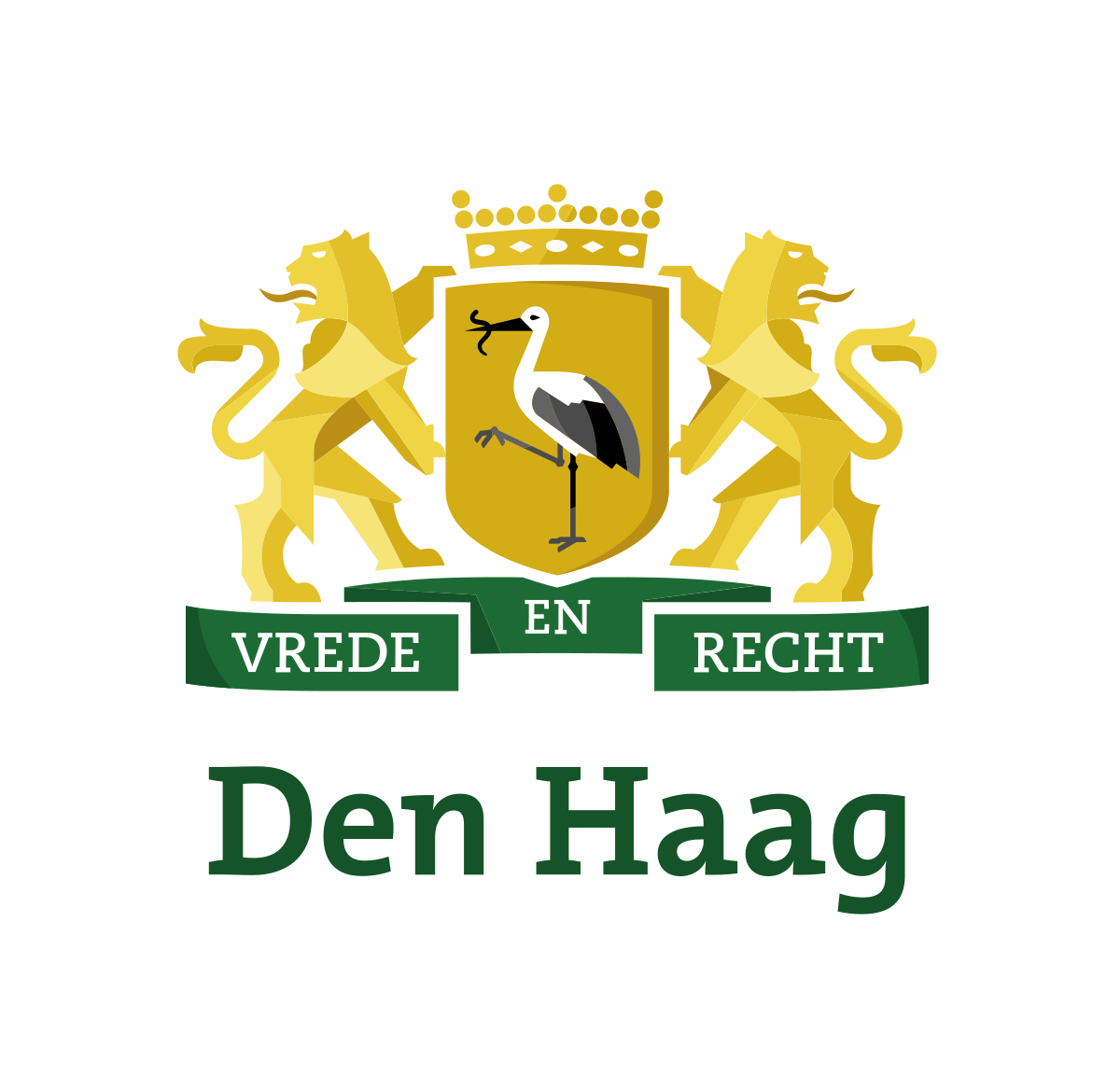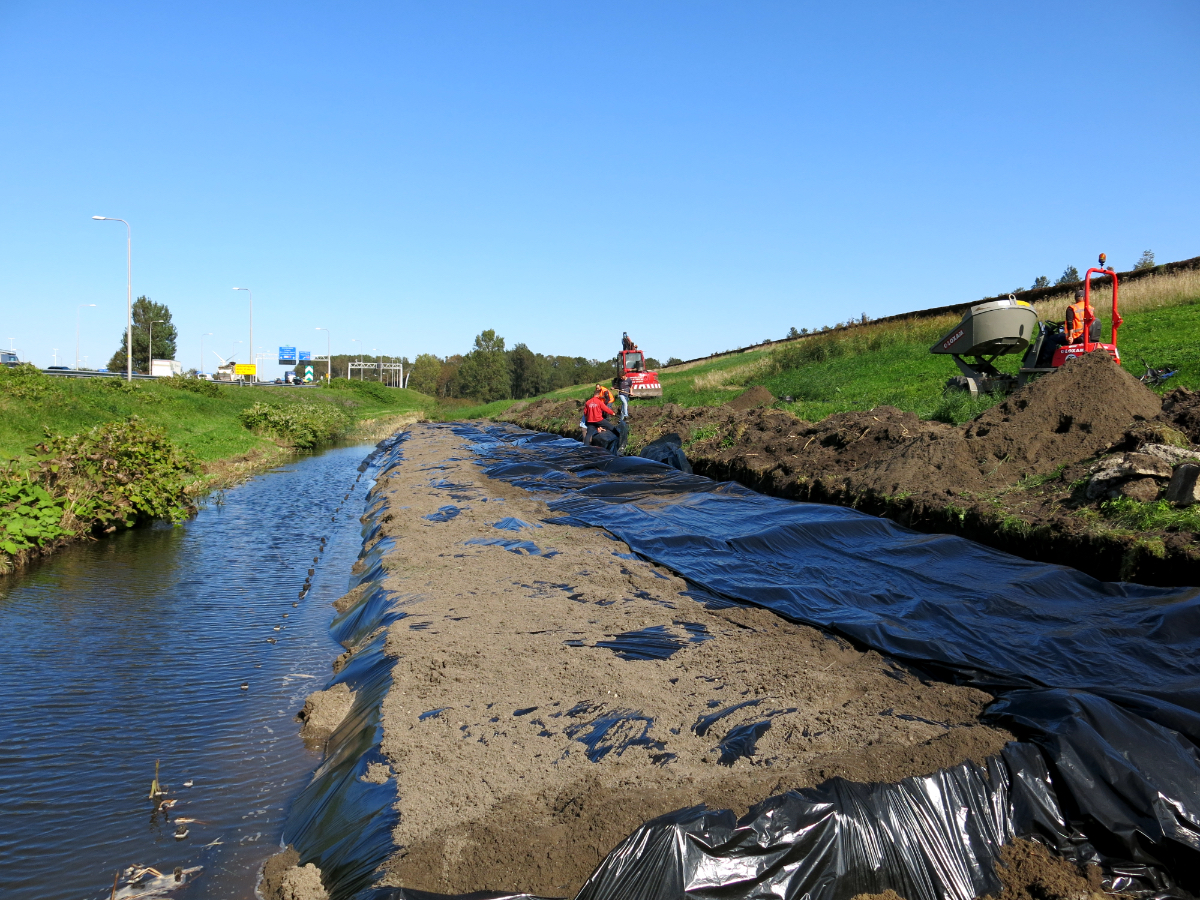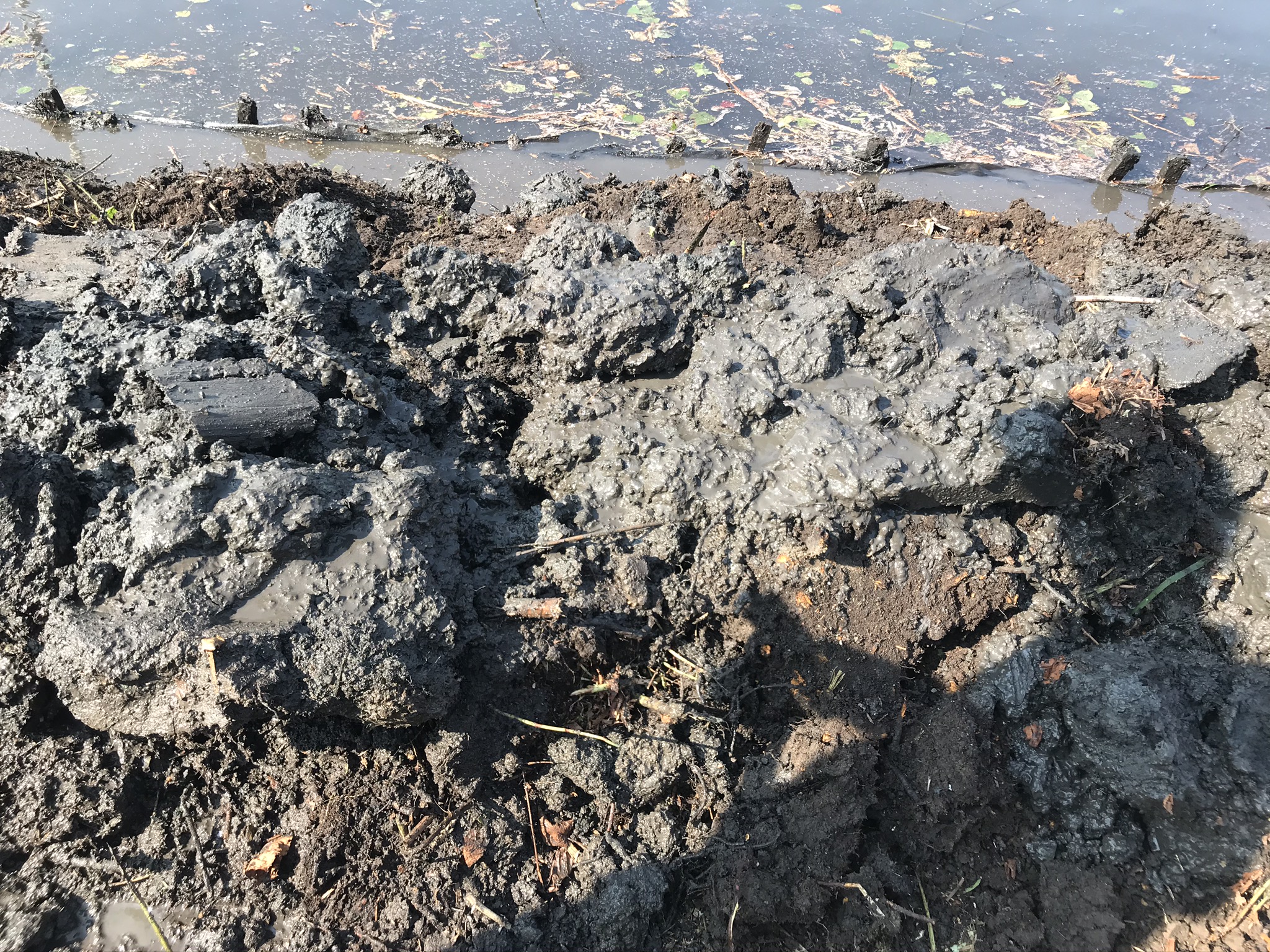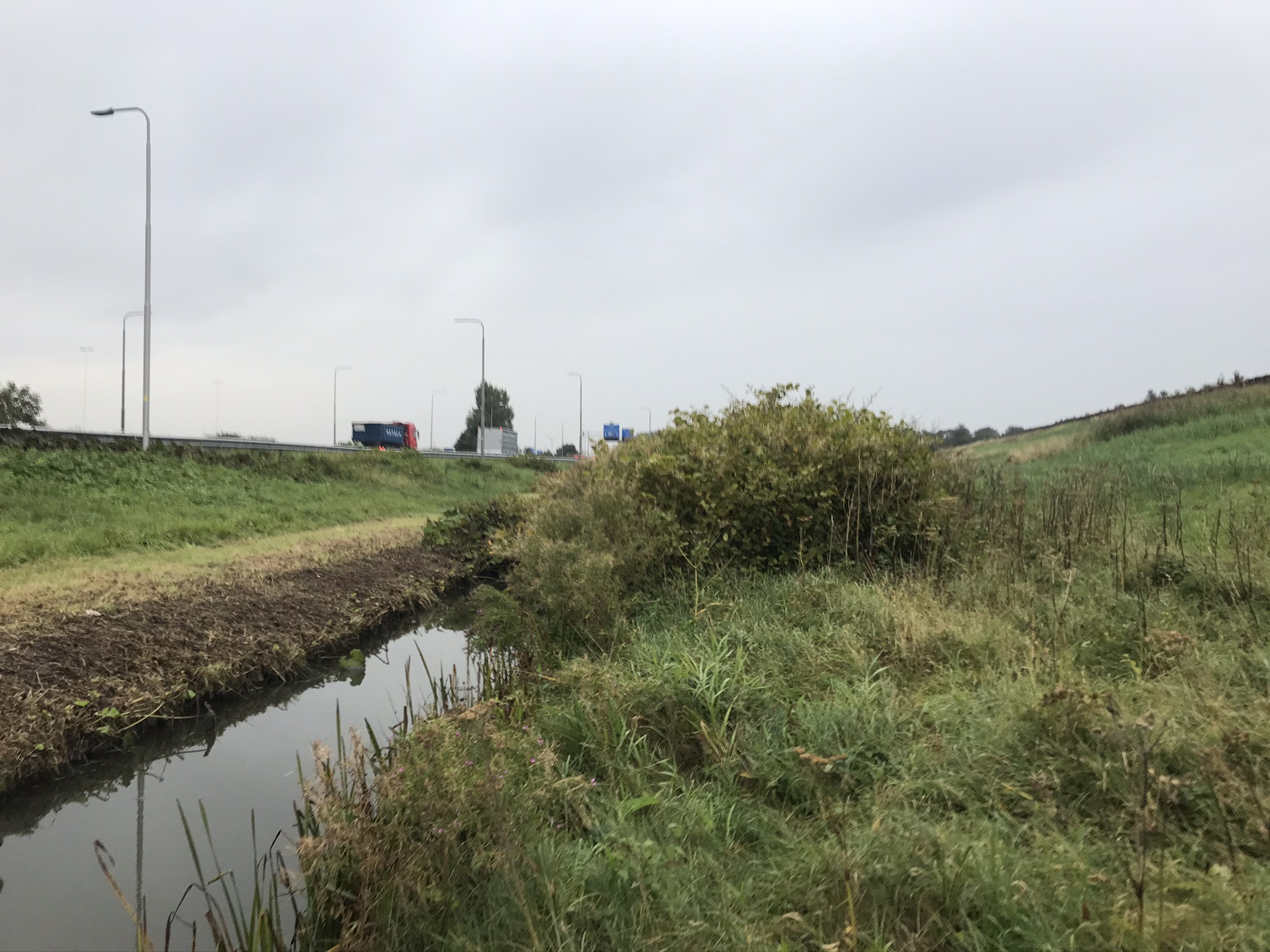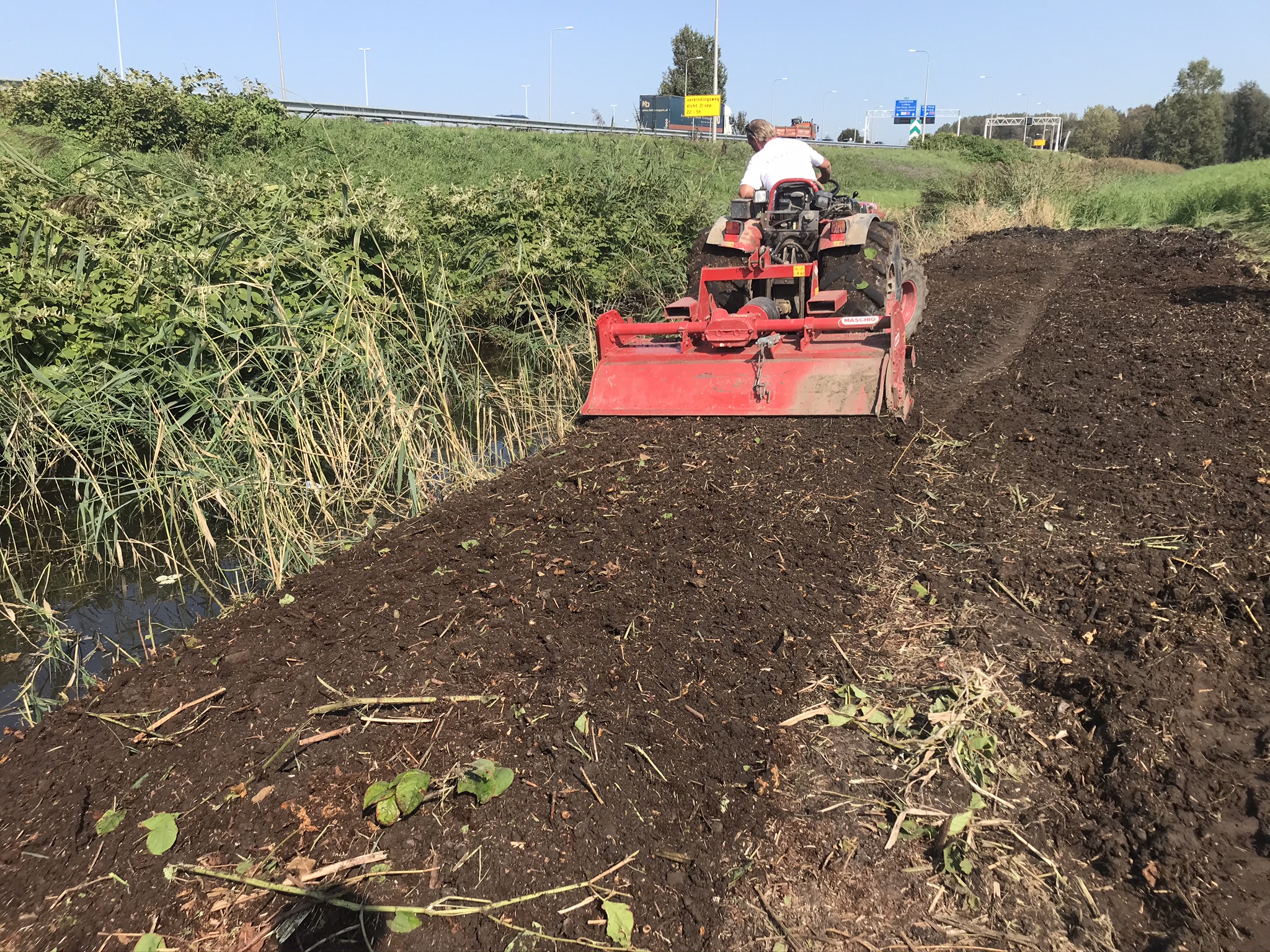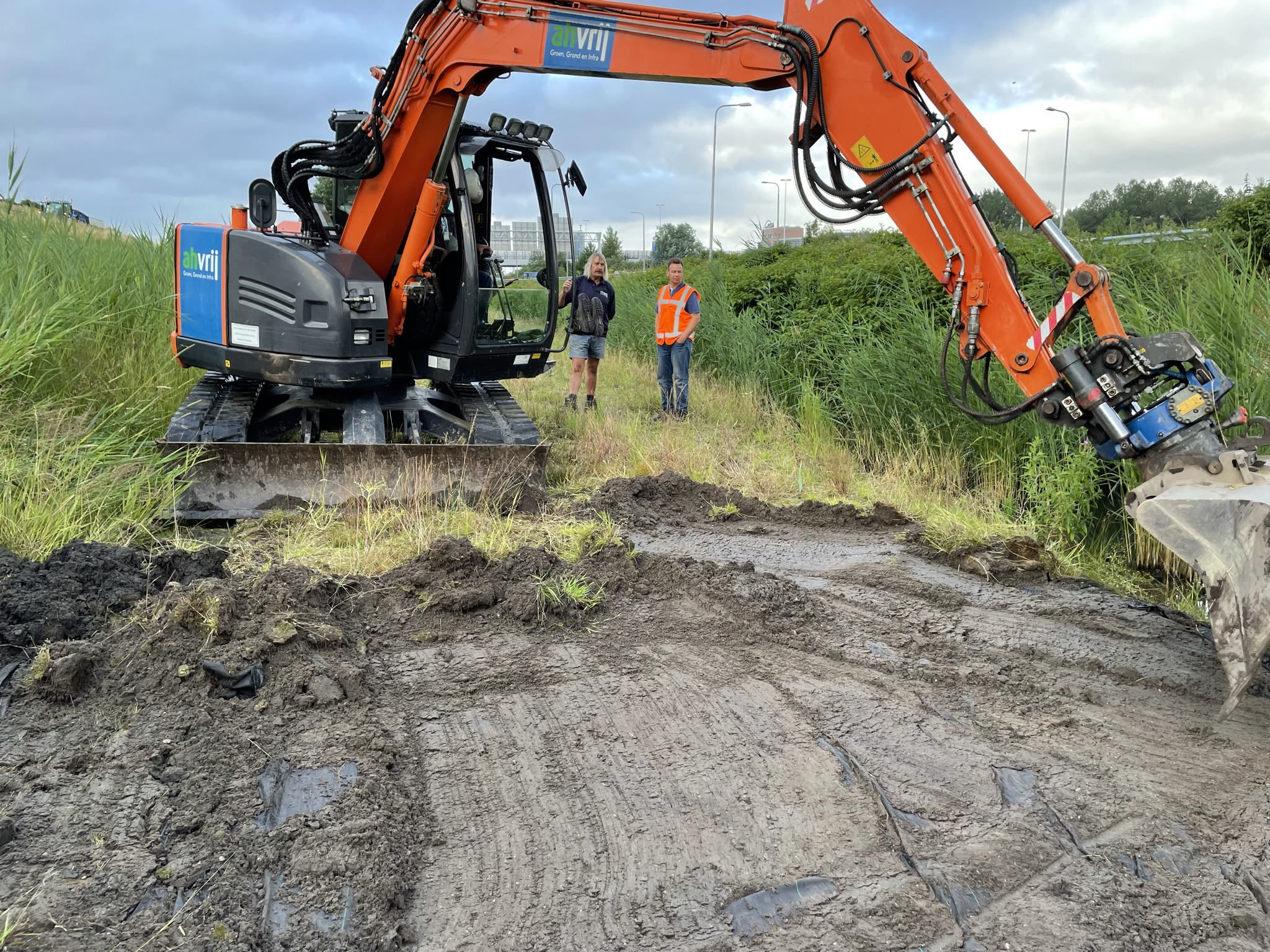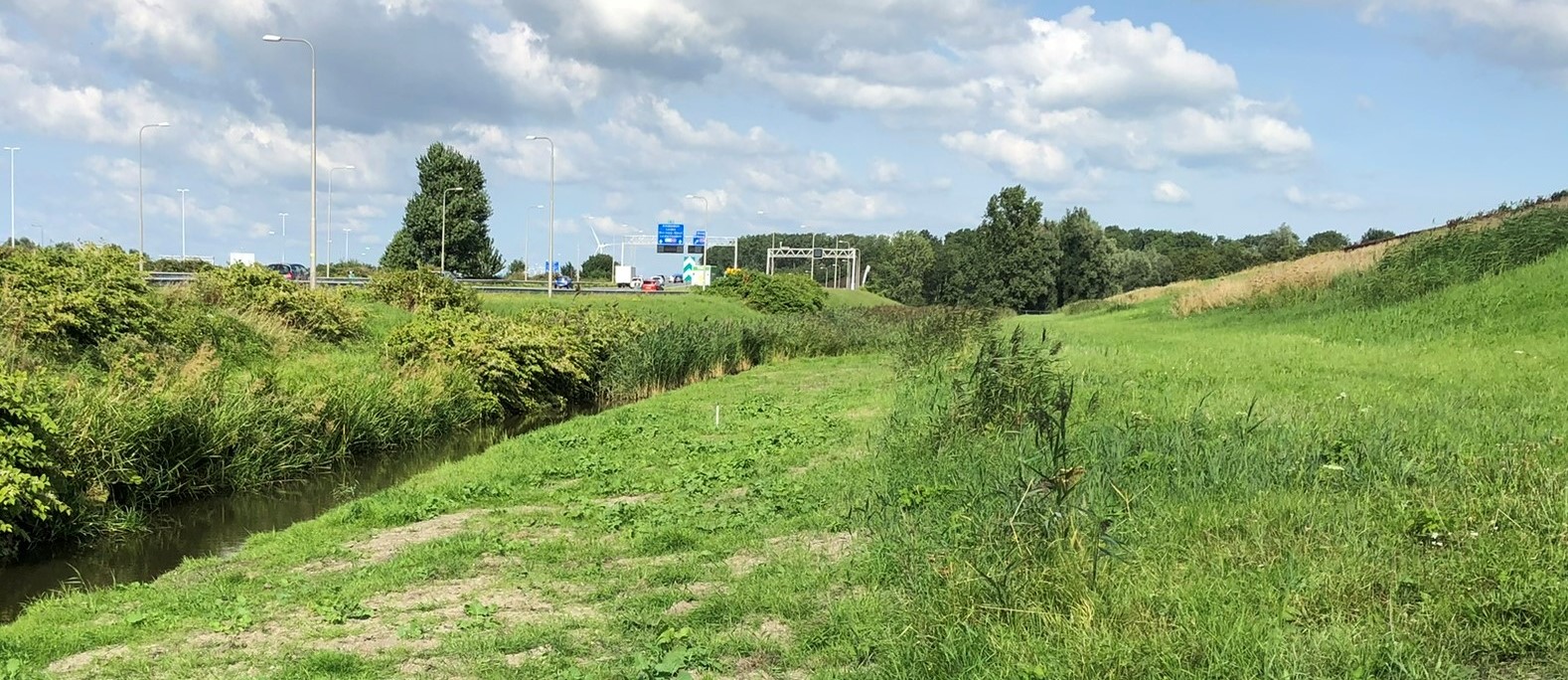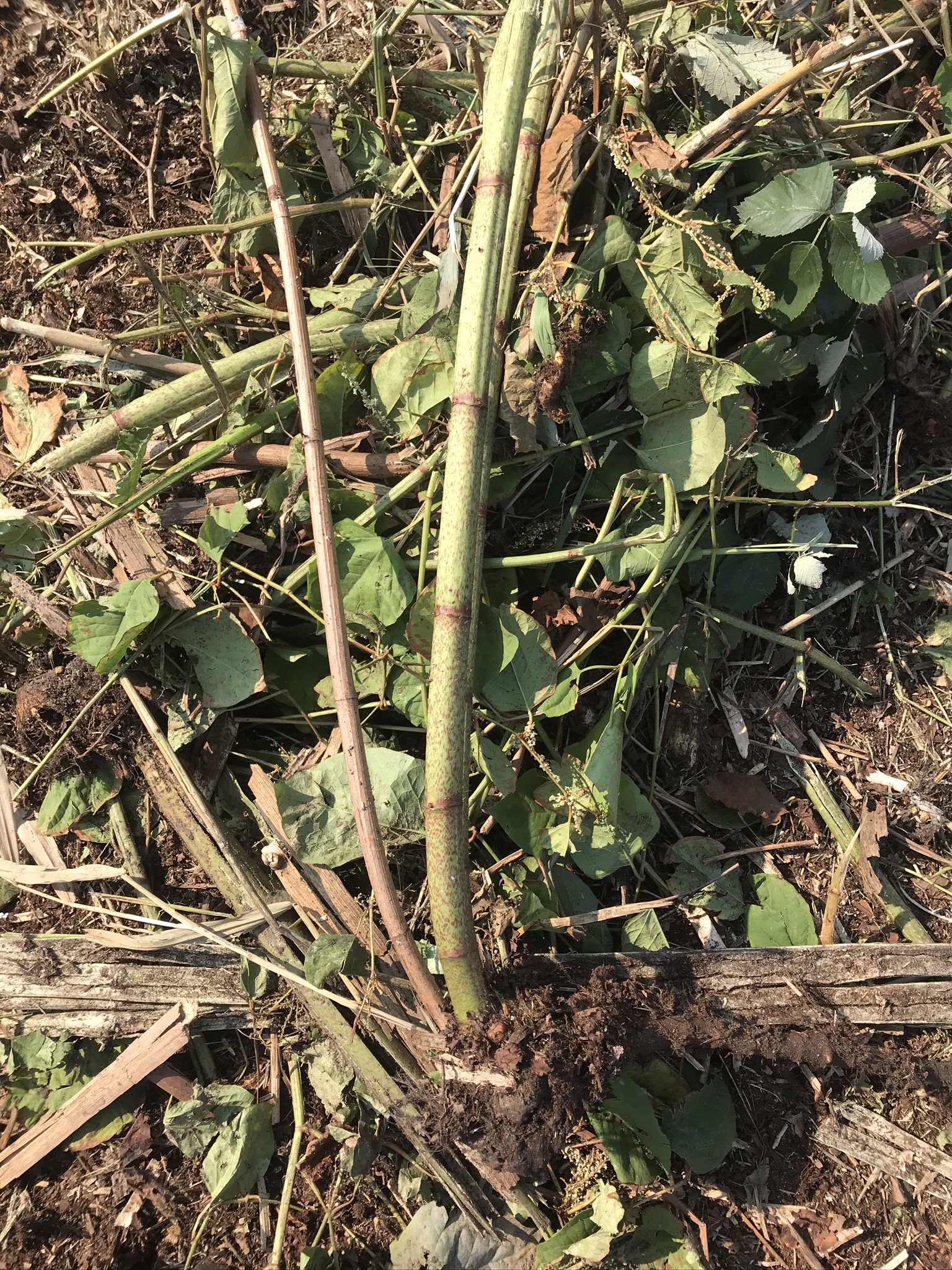Case study: Roots Reset A13 municipality of The Hague
Client: Municipality of The Hague
Contractor: AH Vrij
Year of implementation: 2020
Year of completion: 2021
In 2020, Soilwise received the challenging assignment from the Municipality of The Hague to control the persistent Japanese knotweed along the A13 motorway. Working closely with green contractor AH Vrij, we began tackling Japanese knotweed through Roots Reset. The project was characterised by several challenges.
One of the first obstacles was the discovery of a very old growth of Japanese knotweed, whose knots were several centimetres thick. This required a specific approach to ensure that the treatment would be effective. Using the Roots Reset method, we managed to effectively control the roots and prevent their further growth.
The site itself presented additional challenges, such as tilling the soil along the watercourse and successfully packing it. Along the watercourse, the oxygen-tight foil was successfully connected to the water, this provided effective isolation of oxygen and thus benefited the Roots Reset treatment process.
Another complex hurdle was working the very thick and heavy, grey clay found at a depth of 0.5 metres. Thanks to the use of the right machinery, we managed to overcome this challenge, allowing the treatment of Japanese knotweed to take place in all parts of the site.
After a year, the cloths and foils were removed, ending the treatment. The municipality then closely monitored the site over the past few years. The result has been astonishing: no Japanese knotweed has been found within the treated area. The project can therefore be considered a successful control, resulting in a site that has now remained free of Japanese knotweed for well over several years. This example not only illustrates the effectiveness of the Roots Reset method but also underlines the importance of cooperation and innovative approaches in green space management.
Contractor: AH Vrij
Year of implementation: 2020
Year of completion: 2021
In 2020, Soilwise received the challenging assignment from the Municipality of The Hague to control the persistent Japanese knotweed along the A13 motorway. Working closely with green contractor AH Vrij, we began tackling Japanese knotweed through Roots Reset. The project was characterised by several challenges.
One of the first obstacles was the discovery of a very old growth of Japanese knotweed, whose knots were several centimetres thick. This required a specific approach to ensure that the treatment would be effective. Using the Roots Reset method, we managed to effectively control the roots and prevent their further growth.
The site itself presented additional challenges, such as tilling the soil along the watercourse and successfully packing it. Along the watercourse, the oxygen-tight foil was successfully connected to the water, this provided effective isolation of oxygen and thus benefited the Roots Reset treatment process.
Another complex hurdle was working the very thick and heavy, grey clay found at a depth of 0.5 metres. Thanks to the use of the right machinery, we managed to overcome this challenge, allowing the treatment of Japanese knotweed to take place in all parts of the site.
After a year, the cloths and foils were removed, ending the treatment. The municipality then closely monitored the site over the past few years. The result has been astonishing: no Japanese knotweed has been found within the treated area. The project can therefore be considered a successful control, resulting in a site that has now remained free of Japanese knotweed for well over several years. This example not only illustrates the effectiveness of the Roots Reset method but also underlines the importance of cooperation and innovative approaches in green space management.
